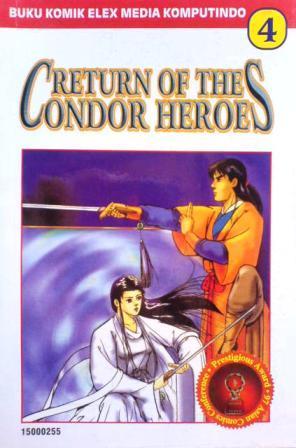Volume One: The City by the Sea
-- written by Maoni
Chapter 1: Story Gathering[1]
Port Danzhou was
located at the east end of the Qing Empire. Although a city by the sea, due to
the fact that the several ports further south had already been developed and
the sea route to the western world had also been opened, the empire’s trade center
had moved to the south, and the port city gradually showed more and more decline.
The once bustling harbor had quieted down over the last few years.
Seagulls flew
about the city freely and no longer had to worry about harassment from those
loathsome sailors.
The original
residents of the city, however, didn’t feel too big of a change in their
everyday lives. It was true that their income had declined, but the emperor,
His Majesty, had exempted the city from taxes several years ago. Therefore,
life wasn’t bad. Besides, this seaport city was so beautiful. Now that it had become
quiet once again, it naturally became even more livable. That was why
occasionally some influential people would choose to build their manors here.
Because it was too
far from the Capital City, very few officials stayed. The only one that somewhat
qualified had to be the Old Madam living in the west part of the town.
It was said that
the Old Madam was the mother of the Count of Southernland in the Capital City,
and chose to live out her life in retirement in the city by the sea. The
residents of Port Danzhou all knew that the Count of Southernland was in great
favor with His Majesty. That was the reason why he wasn’t assigned a position
outside of the Capital City like usual, and instead, stayed in the Capital City
and got a job in the Ministry of Finance. That was why everyone showed plenty
of manners and respect to the residents of the manor.
But kids are
ignorant of such things.
It was a fine and
warm day. Adults mostly found themselves sitting inside a wine-house, enjoying
the salty humidity blown in by the sea winds, together with the preserved plums
and wine in their cups.
In the western
part of the town, just outside the backdoor of Count of Southernland’s manor, a
group of teenagers surrounded the stone steps. Shoulder to shoulder, they
filled the entire opening. What could they be doing there?
If one got closer,
he would find a very interesting scene. It turned out that all these lads were
listening to a four or five-year old kid speaking. The little boy had a pretty
face. His well trimmed eyebrows and his crystal-clear eyes looked as though
they came out of a beautiful painting. Although his young voice was that of a
little kid, the tone of his words clearly showed the arrogance of a senior.
With a sigh, he gestured with his little arms.
“Truman walked up
to the wall, and saw a staircase, so he walked up the staircase step after
step. Then he found the door. Pushing the door open, he walked out…”
“What happened
then?”
“Then? Then…he
naturally went back to the real world.” The little boy pouted, as though he was
quite weary of such a retarded question coming out of someone much older than
him.
“It can’t be!
Shouldn’t he go seek out that Hanny…something…?”
“Harris,” another
teen picked it up.
“Right! Shouldn’t
Truman find that Harris guy and kick his butt to vent his anger? He was locked
in for so many years.”
“Nope.” The little
boy shrugged.
“That was no fun!
Young Master Fan Xian, today’s story is certainly not as good as the ones in the
last few days.”
“Which ones did
you like?”
“A Dreamy Journey
to the Far, Far Away[1]!”
“The Story of a
Charming Wanderer[2]!"
“Bah!” the little
boy named Fan Xian stuck his middle finger out at the older kids around him. “Fighting,
killing everywhere is bad for your health! Digging everywhere for treasure is bad
for the environment!”
A loud, angry
voice arose from inside the manor all of the sudden, “Young Master, where did
you go again?”
The older kids
surrounding him also stuck their middle fingers out in imitation and shouted in
unison, “Bah!” Because of the large number of people involved, it was a much
grander effect. Grinning triumphantly, they quickly scattered and disappeared
into the nearby alleys.
The little boy
stood up from the stone steps and swiftly whisked the dust off the underside of
his pants. Then he turned and dashed into the courtyard. Before he closed the
door, he shot a quick glance toward the young, blind shopkeeper in the small
grocery store across the street with his shrewd eyes, while a complex emotion,
something completely inappropriate for his age, flashed across his face, before
he tenderly shut the door tight.
This was the
fourth year after Fan Shen first came to this world. Throughout these years, he
finally realized it was not a dream. He had indeed arrived at an unknown world.
This world appeared to be identical to the world in his memory, but seemed to
also have many differences.
By eavesdropping
on conversations among servants in the Count’s Manor, he eventually figured out
his status: he was the baseborn son of the Count of Southernland. Just like any
TV series about powerful and rich families, the status of a baseborn son made
him an easy target for all kinds of evil schemes from people such as First-Aunt[3],
Second-Aunt[4],
and others. He happened to be the only son of his “supposed” father. For the
sake of extending the Count’s bloodline, he was sent to the city Port Danzhou
far away from the Capital City.
After so many
years, he gradually grew accustomed to his new identity. Trapping an adult’s
soul in the body of a child was certainly a very different experience both
biologically and spiritually. If he were any other normal person, he probably
would have gone mad – however, conveniently, Fan Shen happened to be a patient
with non-functional muscles and lived in a sick bed for many years. His
difficulty in mobility during this life was nothing compared to the miserable
state in his prior life. As a result he found himself without much discomfort
living inside the body of an infant.
The most
discomfort was actually his name nowadays. When he had been about one-year old,
His Excellency, the Count in the Capital City, sent a letter and bestowed a
name upon him: Fan Xian[5],
with a middle name Anzhi.
This was not a
good name because it sounded just like the cuss word in his original hometown –
“Fan Xian”, which meant having nothing better to do.
Since his outside
form was just an infant, it was impossible for him to voice his objection.
In his prior life
when he had been treated in the hospital, especially in the early days, he
could at least still turn his head around. So he frequently begged that lovely
little nurse to buy pirated DVDs and books for him.
After living in
the Count’s Manor for an extended period, he could tell that the Old Madam only
appeared to be cold in manner, but inside, she doted on him very much. The
slave girls and servants also didn’t regard him with any special treatment
because of his status as a baseborn son. Though, the pain of not being able to
communicate with others bothered him very much.
Could he have
discussed with the slave girls that he was actually from another world? Could
he have told the home teacher that he actually already knew all the characters
in the books?
Therefore, he
often snuck out of the Count’s Manor from the side door and played with those
children of the poor on the streets. His favorite activity was to tell stories
to them, stories from movies and novels in his own world.
It was as though
he wanted to keep reminding himself about something, that he did not belong to
this world. The world he truly belonged to had movies, the Internet, and YY
novels[6].
He didn’t know why
he told the story of the movie: The Truman Show. The plot of the movie was
plain to start with; besides, there was no Jim Carrey to make people laugh. He
should have clearly known that these teenagers of Port Danzhou would have no
way of liking it.
But he told it
anyway, because he always felt that absurdity deep inside his heart. He was on
a dying course. What made him reincarnate inside this body? He couldn’t help
but to remember that movie…. Maybe, all these people, the streets in front of
him, even the seagulls flying in the sky, are just props intentionally arranged
by someone, just like in Truman’s world.
Truman eventually
discovered the falsity of the world he lived in, so he resolutely took the ship
and found the exit.
But Fan Shen, no,
he should be called Fan Xian now … knew that he was no Truman, and this world
truly existed. It was not just a huge soundstage. Therefore his act of telling
stories every day, to remind himself that he was from a different world, was
something truly absurd by itself.
[1]
A popular Internet novel.
[2]
Another popular Internet novel.
[3]
First wife of the Count.
[4]
Second wife of the Count.
[5]
Here “Fan” is the last name, and “Xian” is the first name. In Chinese, “Xian”
means leisure, idle and unoccupied. “Anzhi” means relax and be content and came
from the verse, “Once here, then relax
and be content,” which originally came from the book “The Analects of Confucius.”
[6]
YY stands for Yi Ying, which means being as ridiculous and impudent as your
mind will let you. The main character in such YY novels would always have the
best fortune in the entire universe and eventually have all the fame, money,
and power and become epic heroes, kings or gods in this ridiculous and
non-logical world the author created. This novel itself could be classified
under this genre.
Now support the author Maoni by clicking this link, and support the translator Lanny by following my blog! :)
Video of the Day:
This has nothing to do with robots or translations. But isn't this kid simply amazing?

































































































































